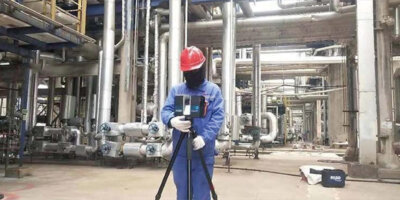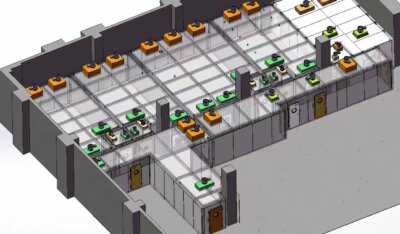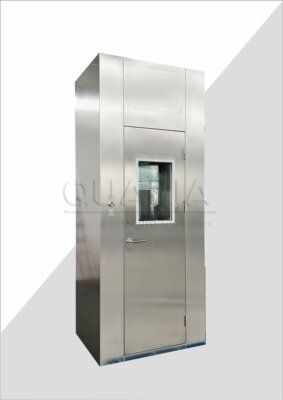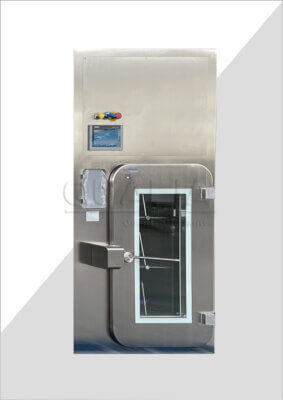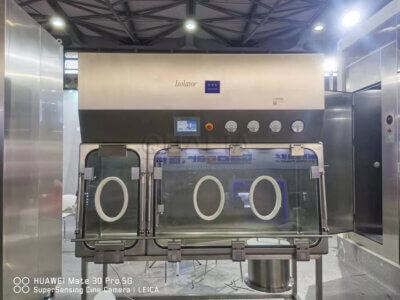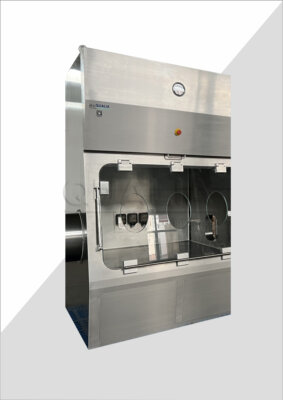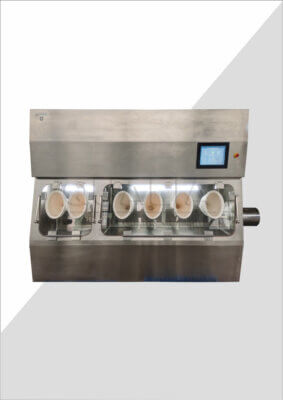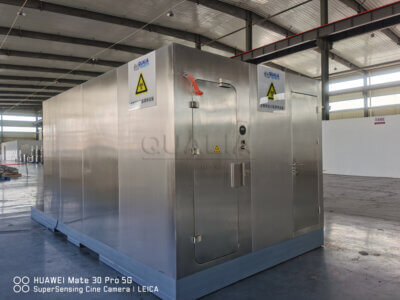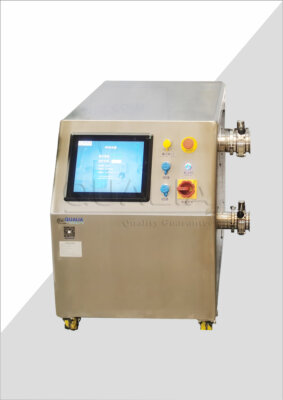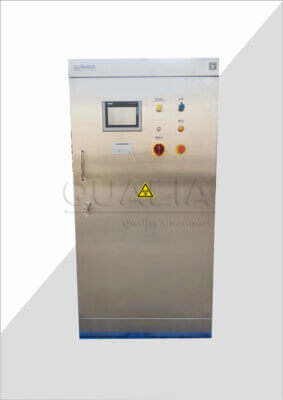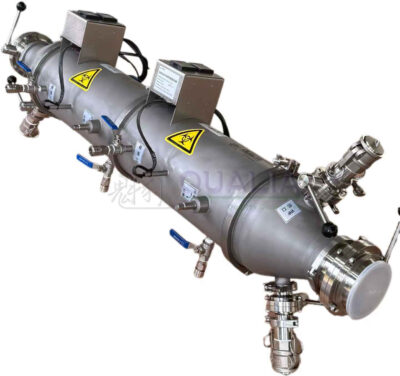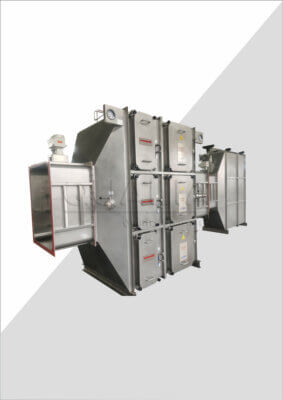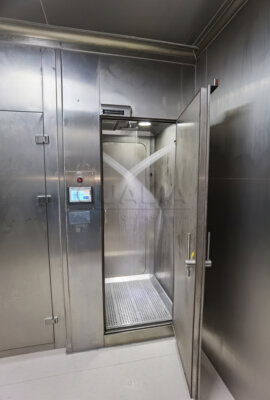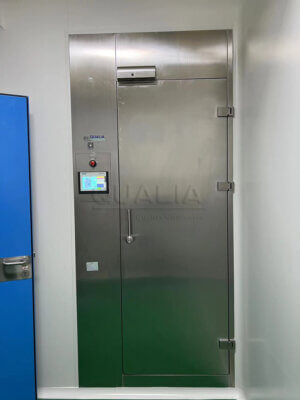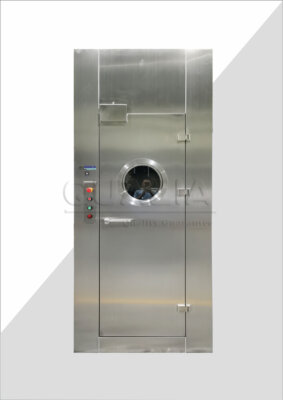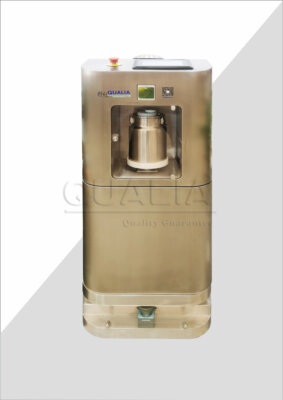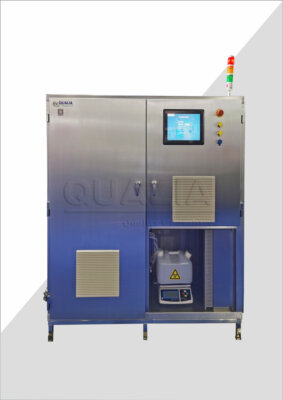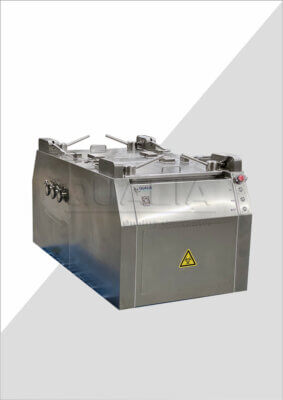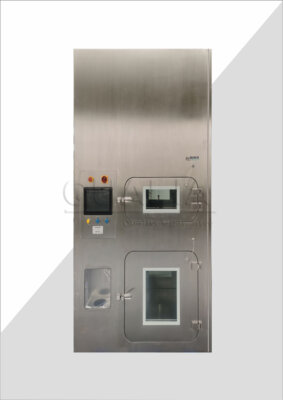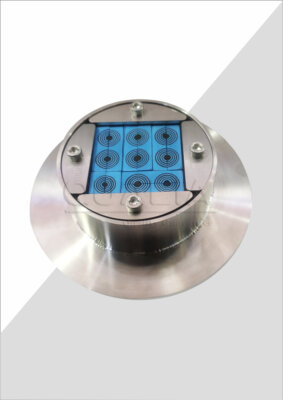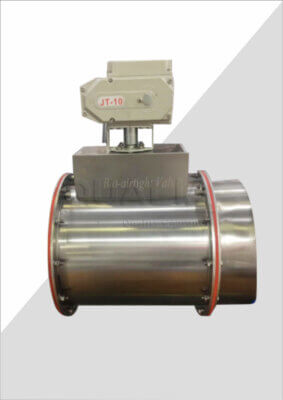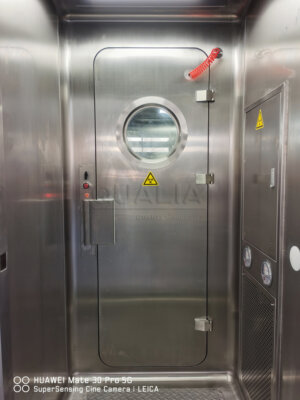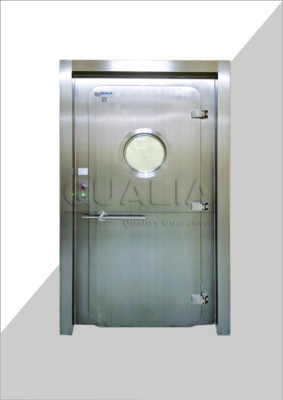Pharmaceutical turnkey projects have become increasingly popular in recent years, offering a comprehensive solution to drug manufacturers looking to streamline their operations and bring new products to market efficiently. These end-to-end solutions encompass every aspect of pharmaceutical facility design, construction, and operation, from initial concept to final production. As the industry continues to evolve, the demand for turnkey projects that can deliver state-of-the-art facilities quickly and cost-effectively has grown exponentially.
In this article, we'll explore the world of pharmaceutical turnkey projects, diving deep into the various components that make up these comprehensive solutions. We'll examine the benefits of adopting an end-to-end approach, the key players involved in these projects, and the critical factors that contribute to their success. Whether you're a pharmaceutical company looking to expand your production capabilities or an industry professional seeking to understand the latest trends in facility design and construction, this guide will provide valuable insights into the world of turnkey projects.
As we delve into the intricacies of pharmaceutical turnkey projects, we'll uncover the challenges and opportunities that arise when implementing these complex solutions. From navigating regulatory requirements to integrating cutting-edge technologies, we'll explore how end-to-end solutions are shaping the future of pharmaceutical manufacturing. By the end of this article, you'll have a comprehensive understanding of the key elements that make up a successful turnkey project and the potential impact these solutions can have on the pharmaceutical industry as a whole.
The pharmaceutical industry is undergoing a significant transformation, driven by the need for more efficient, flexible, and cost-effective manufacturing processes. Turnkey projects have emerged as a powerful solution to address these challenges, offering a holistic approach to facility design and implementation.
"Pharmaceutical turnkey projects provide a complete solution for drug manufacturers, encompassing everything from initial design to final production, resulting in faster time-to-market and reduced operational costs."
What are Pharmaceutical Turnkey Projects?
Pharmaceutical turnkey projects are comprehensive solutions that cover all aspects of designing, constructing, and equipping a pharmaceutical manufacturing facility. These projects typically involve a single contractor or consortium responsible for delivering a fully operational facility to the client. The term "turnkey" refers to the idea that once the project is complete, the client can simply "turn the key" and begin operations.
At its core, a pharmaceutical turnkey project aims to streamline the process of bringing a new manufacturing facility online. This approach offers numerous benefits, including reduced project timelines, improved cost control, and enhanced quality assurance. By working with a single point of contact, pharmaceutical companies can focus on their core competencies while leaving the complexities of facility design and construction to experts in the field.
One of the key advantages of turnkey projects is the integration of various systems and processes into a cohesive whole. This holistic approach ensures that all components of the facility work together seamlessly, from production equipment to quality control systems. QUALIA specializes in providing these End-to-End Solutions, offering clients a comprehensive package that addresses every aspect of pharmaceutical manufacturing.
| Key Components of Pharmaceutical Turnkey Projects |
|---|
| Facility Design and Engineering |
| Construction and Project Management |
| Equipment Selection and Installation |
| Process Validation and Qualification |
| Regulatory Compliance Support |
The success of a pharmaceutical turnkey project relies heavily on the expertise and experience of the contractor. A deep understanding of Good Manufacturing Practices (GMP), regulatory requirements, and the latest technological advancements is essential to deliver a facility that meets the highest standards of quality and efficiency.
How do Turnkey Projects Benefit Pharmaceutical Companies?
Pharmaceutical turnkey projects offer a range of benefits to drug manufacturers, addressing many of the challenges faced in today's competitive landscape. By opting for an end-to-end solution, companies can significantly reduce the time and resources required to bring a new facility online, allowing them to focus on their core business of developing and producing life-saving medications.
One of the primary advantages of turnkey projects is the potential for cost savings. By working with a single contractor, companies can often negotiate better rates and avoid the overhead associated with managing multiple vendors. Additionally, the streamlined project management process can help prevent costly delays and ensure that the facility is completed on time and within budget.
"End-to-end solutions in pharmaceutical turnkey projects can result in cost savings of up to 30% compared to traditional project delivery methods, while also reducing time-to-market by up to 40%."
Another significant benefit is the reduced risk associated with turnkey projects. The contractor assumes responsibility for coordinating all aspects of the project, from design to commissioning, minimizing the potential for errors or miscommunications that can occur when working with multiple parties. This single-point accountability also simplifies problem-solving and decision-making processes throughout the project lifecycle.
Turnkey projects also offer greater flexibility and scalability. As pharmaceutical companies' needs evolve, the modular nature of many turnkey solutions allows for easier expansion or modification of facilities. This adaptability is crucial in an industry where market demands and regulatory requirements are constantly changing.
| Benefits of Pharmaceutical Turnkey Projects |
|---|
| Reduced Time-to-Market |
| Cost Savings and Better Budget Control |
| Simplified Project Management |
| Enhanced Quality Control |
| Improved Regulatory Compliance |
Finally, turnkey projects can help pharmaceutical companies stay at the forefront of technological innovation. Experienced contractors are often well-versed in the latest advancements in manufacturing processes, automation, and quality control systems. By leveraging this expertise, companies can ensure that their new facilities are equipped with state-of-the-art technology that enhances productivity and product quality.
What are the Key Stages of a Pharmaceutical Turnkey Project?
A successful pharmaceutical turnkey project typically follows a well-defined process, with each stage building upon the previous one to create a cohesive and efficient facility. Understanding these stages is crucial for both pharmaceutical companies and contractors to ensure smooth project execution and optimal results.
The first stage of a turnkey project is conceptualization and feasibility studies. During this phase, the contractor works closely with the client to define project goals, assess technical and financial feasibility, and develop a preliminary design concept. This stage sets the foundation for the entire project and helps identify potential challenges early on.
Following the initial planning, the project moves into the detailed design phase. Here, architects and engineers create comprehensive blueprints for the facility, including specifications for equipment, utilities, and process flows. This stage also involves obtaining necessary regulatory approvals and ensuring compliance with GMP standards.
"A well-executed design phase in pharmaceutical turnkey projects can reduce construction time by up to 25% and minimize costly changes during later stages of the project."
Once the design is finalized, construction begins. This stage involves site preparation, building construction, and the installation of critical systems such as HVAC, electrical, and plumbing. Throughout the construction phase, project managers closely monitor progress to ensure adherence to timelines and quality standards.
| Key Stages of Pharmaceutical Turnkey Projects |
|---|
| Conceptualization and Feasibility Studies |
| Detailed Design and Engineering |
| Construction and Equipment Installation |
| Commissioning and Qualification |
| Validation and Regulatory Approval |
The final stages of a turnkey project involve commissioning, qualification, and validation. During commissioning, all systems and equipment are tested to ensure they function as intended. Qualification involves documenting that the facility, equipment, and processes meet predefined specifications. Finally, validation demonstrates that the facility consistently produces products that meet quality standards.
Throughout these stages, effective communication and collaboration between the contractor and the pharmaceutical company are essential. Regular progress meetings, clear documentation, and transparent reporting help ensure that the project stays on track and meets all requirements.
How Does Technology Impact Pharmaceutical Turnkey Projects?
In recent years, technological advancements have significantly impacted the way pharmaceutical turnkey projects are conceived, designed, and implemented. From cutting-edge manufacturing equipment to sophisticated digital tools, technology plays a crucial role in enhancing the efficiency and effectiveness of these end-to-end solutions.
One of the most significant technological trends in pharmaceutical turnkey projects is the integration of Industry 4.0 principles. This includes the use of Internet of Things (IoT) devices, artificial intelligence, and big data analytics to create smart manufacturing facilities. These technologies enable real-time monitoring of production processes, predictive maintenance, and data-driven decision-making, leading to improved efficiency and product quality.
Another area where technology is making a significant impact is in facility design and construction. Building Information Modeling (BIM) software allows for highly detailed 3D modeling of pharmaceutical facilities, enabling better coordination between different design disciplines and reducing the risk of conflicts during construction. Virtual and augmented reality tools are also being used to visualize and optimize facility layouts before construction begins.
"The implementation of Industry 4.0 technologies in pharmaceutical turnkey projects can lead to productivity improvements of up to 25% and reductions in quality control costs of up to 30%."
Automation and robotics are increasingly being incorporated into pharmaceutical manufacturing processes as part of turnkey projects. From automated material handling systems to robotic filling and packaging lines, these technologies can significantly increase production capacity while reducing the risk of human error and contamination.
| Key Technologies in Pharmaceutical Turnkey Projects |
|---|
| Industry 4.0 and IoT Integration |
| Building Information Modeling (BIM) |
| Virtual and Augmented Reality |
| Advanced Process Control Systems |
| Automated Material Handling and Robotics |
The use of modular and prefabricated construction techniques is another technological trend impacting turnkey projects. These methods allow for faster construction times, improved quality control, and greater flexibility in facility design. Modular cleanrooms, for example, can be quickly assembled and easily modified to accommodate changing production needs.
As technology continues to evolve, pharmaceutical companies and turnkey project contractors must stay informed about the latest advancements and their potential applications. By leveraging these technologies effectively, turnkey projects can deliver state-of-the-art facilities that are more efficient, flexible, and future-proof.
What Regulatory Considerations are Involved in Pharmaceutical Turnkey Projects?
Regulatory compliance is a critical aspect of pharmaceutical turnkey projects, as the facilities must meet stringent quality and safety standards to ensure the production of safe and effective medications. Navigating the complex landscape of pharmaceutical regulations requires expertise and careful planning throughout the project lifecycle.
One of the primary regulatory considerations in turnkey projects is adherence to Good Manufacturing Practices (GMP). These guidelines, established by regulatory bodies such as the FDA and EMA, outline the minimum requirements for pharmaceutical manufacturing facilities. Turnkey project contractors must have a thorough understanding of GMP principles and how to implement them in facility design and construction.
Another important regulatory aspect is the validation of facilities, equipment, and processes. This involves demonstrating that the manufacturing facility can consistently produce products that meet predetermined specifications. Validation activities must be carefully documented and often require extensive testing and data analysis.
"Effective regulatory compliance strategies in pharmaceutical turnkey projects can reduce the time required for regulatory approvals by up to 50% and minimize the risk of costly remediation efforts."
Environmental regulations also play a significant role in pharmaceutical turnkey projects. Facilities must be designed to minimize environmental impact, including proper waste management systems and energy-efficient technologies. Contractors must be familiar with local and international environmental regulations to ensure compliance throughout the project.
| Key Regulatory Considerations in Pharmaceutical Turnkey Projects |
|---|
| Good Manufacturing Practices (GMP) Compliance |
| Facility and Process Validation |
| Environmental Regulations |
| Quality Management Systems |
| Data Integrity and Computer System Validation |
Data integrity and computer system validation are becoming increasingly important regulatory considerations in pharmaceutical turnkey projects. With the growing use of digital technologies in manufacturing processes, ensuring the security and reliability of data is crucial. Turnkey project contractors must implement robust data management systems and validate all computerized systems used in the facility.
Navigating these regulatory considerations requires close collaboration between the pharmaceutical company, the turnkey project contractor, and regulatory experts. By addressing compliance issues proactively throughout the project, companies can avoid costly delays and ensure a smooth path to facility approval and operation.
How to Choose the Right Partner for a Pharmaceutical Turnkey Project?
Selecting the right partner for a pharmaceutical turnkey project is a critical decision that can significantly impact the success of the venture. With the complexity and scope of these projects, it's essential to choose a contractor with the expertise, experience, and resources to deliver a high-quality facility that meets all regulatory requirements and operational needs.
One of the primary factors to consider when choosing a turnkey project partner is their track record in the pharmaceutical industry. Look for contractors with a proven history of successfully completing similar projects, particularly those involving facilities of comparable scale and complexity. Case studies and client testimonials can provide valuable insights into a contractor's capabilities and performance.
Technical expertise is another crucial consideration. The ideal partner should have a deep understanding of pharmaceutical manufacturing processes, GMP requirements, and the latest technologies relevant to your project. They should be able to demonstrate their knowledge through detailed project proposals and technical discussions.
"Choosing the right partner for a pharmaceutical turnkey project can lead to cost savings of up to 20% and reduce project timelines by up to 30% compared to working with less experienced contractors."
Financial stability and resources are also important factors to consider. Pharmaceutical turnkey projects often involve significant investments, and it's crucial to work with a partner who has the financial capacity to see the project through to completion. Additionally, consider the contractor's global reach and supply chain capabilities, especially for projects that may involve international sourcing or multiple locations.
| Key Factors in Choosing a Pharmaceutical Turnkey Project Partner |
|---|
| Industry Experience and Track Record |
| Technical Expertise and Knowledge |
| Financial Stability and Resources |
| Global Reach and Supply Chain Capabilities |
| Regulatory Compliance Expertise |
Communication and project management skills are often overlooked but are critical for the success of turnkey projects. Look for partners who demonstrate clear and transparent communication practices, have robust project management systems in place, and can provide regular, detailed progress reports.
Ultimately, the right partner for your pharmaceutical turnkey project should be able to offer a comprehensive End-to-End Solutions package that addresses all aspects of facility design, construction, and commissioning. By carefully evaluating potential partners based on these criteria, pharmaceutical companies can increase their chances of a successful project outcome and a smooth transition to operations.
What are the Future Trends in Pharmaceutical Turnkey Projects?
As the pharmaceutical industry continues to evolve, so too do the trends and innovations in turnkey projects. Staying ahead of these developments is crucial for both pharmaceutical companies and contractors to ensure they're delivering cutting-edge facilities that meet future needs and challenges.
One of the most significant trends is the increasing focus on flexibility and adaptability in facility design. With the rise of personalized medicine and smaller batch production, pharmaceutical companies are seeking turnkey solutions that can easily accommodate changes in product mix and production volumes. This trend is driving the development of modular and reconfigurable manufacturing spaces that can be quickly adapted to new processes or products.
Sustainability is another key trend shaping the future of pharmaceutical turnkey projects. There's a growing emphasis on designing facilities that minimize environmental impact through energy-efficient systems, waste reduction strategies, and the use of sustainable materials. This not only helps companies meet increasingly stringent environmental regulations but also aligns with corporate social responsibility goals.
"Future-focused pharmaceutical turnkey projects that incorporate flexible design and sustainable practices can reduce operational costs by up to 25% over the facility's lifetime and improve overall equipment effectiveness by up to 15%."
The integration of advanced analytics and artificial intelligence into manufacturing processes is set to revolutionize pharmaceutical turnkey projects. These technologies enable predictive maintenance, real-time quality control, and optimized production scheduling, leading to significant improvements in efficiency and product quality. Turnkey project contractors will need to stay at the forefront of these technological advancements to deliver state-of-the-art facilities.
| Future Trends in Pharmaceutical Turnkey Projects |
|---|
| Flexible and Adaptable Facility Design |
| Sustainable and Eco-Friendly Solutions |
| Advanced Analytics and AI Integration |
| Continuous Manufacturing Technologies |
| Enhanced Cybersecurity Measures |
Continuous manufacturing is another trend that's gaining traction in the pharmaceutical industry. This approach, which involves producing drugs in a single, uninterrupted process, offers numerous benefits including reduced production times, improved quality control, and lower costs. Turnkey project contractors will need to develop expertise in designing and implementing continuous manufacturing facilities to meet this growing demand.
As pharmaceutical manufacturing becomes increasingly digitized, cybersecurity is emerging as a critical consideration in turnkey projects. Protecting sensitive data and ensuring the integrity of manufacturing processes will require robust security measures to be integrated into every aspect of facility design and operation.
By staying informed about these future trends and incorporating them into their offerings, turnkey project contractors can provide pharmaceutical companies with truly innovative and forward-thinking solutions. This proactive approach ensures that new facilities are not only state-of-the-art at the time of completion but are also well-positioned to meet the challenges and opportunities of tomorrow's pharmaceutical landscape.
In conclusion, pharmaceutical turnkey projects represent a comprehensive approach to facility design, construction, and operation that offers numerous benefits to drug manufacturers. From reduced time-to-market and cost savings to enhanced quality control and regulatory compliance, these end-to-end solutions are transforming the way pharmaceutical companies approach new facility development.
As we've explored in this article, the success of a turnkey project depends on careful planning, expert execution, and close collaboration between the pharmaceutical company and the chosen contractor. By understanding the key stages of a turnkey project, leveraging cutting-edge technologies, and navigating regulatory requirements effectively, companies can maximize the benefits of this approach.
Looking to the future, pharmaceutical turnkey projects will continue to evolve, incorporating new technologies, sustainable practices, and flexible design principles to meet the changing needs of the industry. As the demand for more efficient, adaptable, and cost-effective manufacturing facilities grows, the importance of choosing the right partner for these complex projects cannot be overstated.
By embracing the end-to-end solutions offered by turnkey projects, pharmaceutical companies can position themselves at the forefront of innovation, ready to meet the challenges and opportunities of an ever-changing global healthcare landscape. As we move forward, the role of turnkey projects in shaping the future of pharmaceutical manufacturing will only continue to grow, driving progress and enabling the delivery of life-saving medications to patients around the world.
External Resources
What is an end-to-end (E2E) solution? – Trenton Systems – This article explains what an end-to-end solution is, highlighting its comprehensive approach to solving problems from start to finish, including hardware and software integration, and its benefits in ensuring seamless system performance.
End-to-End Market Research – Ro-bas – This resource details the concept of end-to-end market research, which provides a holistic view of the market landscape, consumer preferences, and competitive dynamics. It outlines the components and benefits of this approach in driving informed decision-making and innovation.
End-to-End Solutions: What They Are and Benefits | Simpro – This article defines end-to-end solutions in the context of software and systems, emphasizing how a single provider supplies all necessary software and hardware, streamlining business processes and enhancing efficiency.
- Top 3 Reasons You Should be Using an End-To-End Research Platform – Quantilope – This resource highlights the advantages of using end-to-end research platforms, including automation, collaboration, and faster project turnarounds, making market research more efficient and effective.
Related Contents:
- Timeline Management for Pharma Turnkey Projects 2025
- Pharmaceutical Engineering: GMP Standards Guide 2025
- Regulatory Compliance and Closed RABS in Pharmaceutical Production
- FDA Regulations for Pharma Turnkey Projects 2025
- Navigating Regulatory Waters: Effluent Treatment in Biopharma
- Revolutionizing Manufacturing: Closed RABS and Industry 4.0 Integration
- Safeguarding Vaccine Production: Advanced Effluent Decontamination Systems
- Enhancing Safety in Vaccine Production: The Role of EDS
- Safeguarding Vaccines: Advanced Effluent Decontamination Systems


